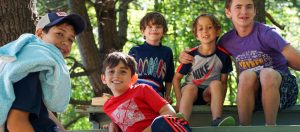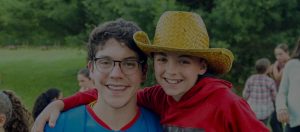Dear Yavneh friends and family,
This is Josh Schwartz, Rosh Kerem, writing about this past week’s Shabbat guest. Each week, Yavneh brings scholars to camp to teach an oneg Friday night to the madrichim (counselors), and to talk to some of the chanichim (campers) on Shabbat afternoon in learning sessions called sichot. The two oldest aydot (units) get to hear from the same guest in back to back sichot. This past week, Maalot, the fifteen year old chanichim, and Kerem, the sixteen year old chanichim, heard from Rabbi Charlie Schwartz, the Director of Content Development at Hillel International.
Rabbi Schwartz began his talk by asking the chanichim to define the difference between fun and joy. He pushed them to think about the way that joy is presented biblically. For example, the Torah has a word for joy, but the Hebrew word for fun, kef, is a contemporary addition to the language and is borrowed from Arabic unlike most modern Hebrew words which are based on biblical shoreshim (roots). Rabbi Schwartz used this semantic shift to demonstrate how philology constructs our experiences. He made the point that through language, the Torah has a different understanding of joy, one that parts dramatically from our modern definition. He broadened the conversation by asking the chanichim to share moments in which they felt joy and compare them to moments in which they had fun. Chanichim pointed out that joy feels more active, while fun is a passive experience, that fun is contingent on joy but that joy can happen in the absence of fun, and that joy is used to describe deeper, more meaningful experiences.
Rabbi Schwartz ended our learning session by teaching us a Chasidic niggun (a wordless melody). He had the whole aydah stand up together in a circle, and sang through the tune a few times, asking the chanichim to join as they learned, reminding us that both joy and fun often rely on collective experience, a lesson which Kerem will carry forward into the rest of the kayitz (summer).
B’ahava,
Josh Schwartz




